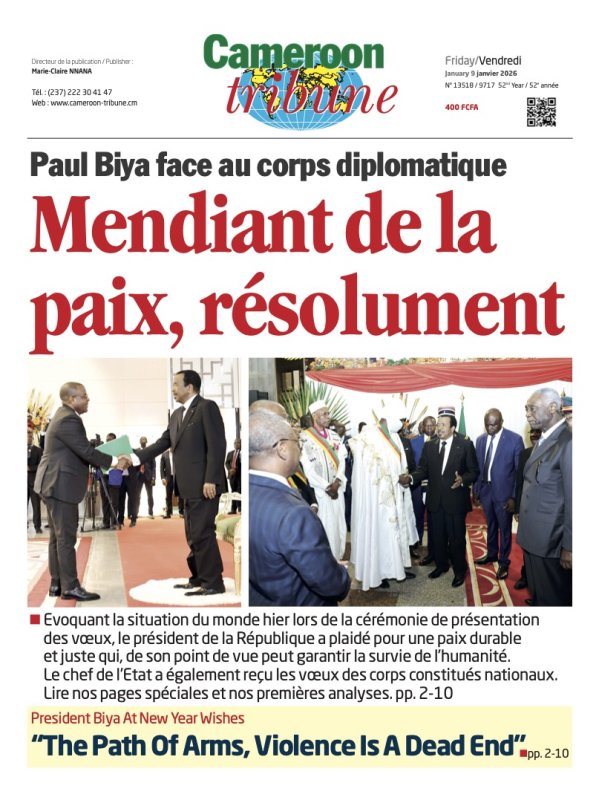Transit Within CEMAC: The Indispensable Synergy!
- Par Godlove BAINKONG
- 25 Nov 2024 17:21
- 0 Likes
Transporters plying the various corridors within the Central African Economic and Monetary Community (CEMAC) likewise those who own the various trucks being used to convey goods from one end to the other, are certainly in a state of ecstasy following the announcement a few days back that from January 1, 2025, they will thence pay FCFA 25,000 as GPS fee, down from FCFA 32,000. The euphoria can equally be for final consumers of the transported goods as they hope the reduction in the rate would also have effects on the prices they pay. Clearly so as transport cost always affects that of the product at its final destination.
In effect, on November 7, 2024, Cameroon’s Director General of Customs issued a note stating that; “This reduction of around FCFA 7,000 is part of the drive to improve the competitiveness of transit corridors. It is also part of the drive to facilitate trade with neighbouring countries.” The move from the Cameroon Customs is one of the results of the implementation of the Nexus+ technological and financial model, which was developed following government’s decision to strive for the simplification of transit procedures.
Historically, GPS installation fee was introduced by the government when the Nexus project was launched in 2009, in order to finance the geo-location tracking system for goods in transit along the various corridors. Reports say these fees are still paid in person at a local counter, which is time-consuming. But sources hold that discussions are underway with a view to diversifying payment methods and thus facilitating the various procedures. Innovative indeed!
This is a bold step taken in a right direction to make movement easier and cheaper for all. A huge sacrifice as well given what the FCFA 7,000 reduction per GPS means to an administration like Customs which has a daunting task of mobilising revenue for the State. Evidently, the shortfall such a discount could cost the State coffers is immeasurable. However, viewed from another angle, the giant step could open more doors for better revenue were other actors to toe the line and smoothen other factors that get into play in the interwoven chain needed to wholly make transit within the sub-region as fluid as speeches.
In simple understanding, the discount in GPS fee is capable; all things being equal, to attract more trucks on the corridors. This would step up the volume of trade and by extension increased revenue. But the arithmetic is never as equal as it sounds. There are many actors in the chain and their activities are so linked that one’s good or bad behaviours directly affect the other and influence the outcome of the joint effort. Thus as salutary as the decision of the Cameroon Custom’s administration is, it would only produce the required results if other actors readjust their functional mechanisms, putting community interest above egoistic gains.
Inasmuch as the list may be too long, it would at least be rational to remind those who matter in the domain, within and without Cameroon, to give a serious look to two areas: Transport infrastructure and the number of checkpoints along the different corridors. Those who use the existing roads continually decry their poor state and the archaic way in which most, if not all, of them were and are being constructed. Worse still, the roads are increasingly degrading owing to heavy traffic on them. They are not good for transnational movement of goods at all.
Even weighing stations which should have helped to control the overloaded trucks that destroy the tar have rather been transformed into money-making tools by those who manage them. This is in complete disregard for their original mission which consists principally in controlling the weight of trucks, offloading excesses and allowing only the normal weight to go through. Activities therein are everything, but this and the end to such business doesn’t seem anywhere near. Even the way some of the weighing stations are constructed; without enough storage areas, promotes the business given that offloaded goods would not have where to be stored.
There is a need to sit up, notably in wholly modernising the transport infrastructure for smooth transit. In a sub-region where some countries are landlocked as is the case with CEMAC, it would be beneficial and sometimes cost-effective to modernise its land and rail transport systems...
Cet article complet est réservé aux abonnés
Déjà abonné ? Identifiez-vous >
Accédez en illimité à Cameroon Tribune Digital à partir de 26250 FCFA
Je M'abonne1 minute suffit pour vous abonner à Cameroon Tribune Digital !
- Votre numéro spécial cameroon-tribune en version numérique
- Des encarts
- Des appels d'offres exclusives
- D'avant-première (accès 24h avant la publication)
- Des éditions consultables sur tous supports (smartphone, tablettes, PC)











Commentaires